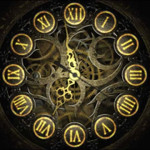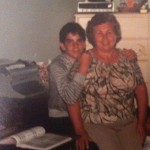 We’ve seen some incredible stories this month. I know I’ve enjoyed them.
We’ve seen some incredible stories this month. I know I’ve enjoyed them.
Reading through the posts so far this month, I’ve been left wondering why real life is often so much stranger than fiction. Fiction is make believe, but it has its limits. They’re not the same limits set in our physical world or we’d never accept things like time travel, hobbits, and big magic. Yet those wonderful figments of our imagination are believed and embraced while some events that transpire in real life are rejected as ‘unbelievable’.
Why is that?
In fiction I can have purple unicorns or good fairies or soul-sucking demons and readers will clamor for more. But I cannot have serendipitous coincidences, unexpected miracles, or meaningless tragedy without risking the breakdown of credibility.
As authors it’s a critical element to understand. If we get it wrong, we knock our readers out of the story and they dismiss us as hacks. If we get it right, we suck people into our worlds and spin tales of wonder that can enchant for a lifetime.
First, it’s a matter of setup.
We define our worlds and transport the readers into them. We can set any boundaries we want, and sometimes we set some pretty wild ones.
I developed a story with my kids once that included a completely random magic system. We had a blast with that one because no one had any idea what might come next. It included assault rainbow ponies, fajita blaster go-karts, fifty foot pits of jell-o, and much more. And since we had defined it as a random chance based experience, all of that was believable.
The catch is, once we define the boundaries of a story, we cannot cross them. Once we build a world within those boundaries, everything that happens must be ‘believable’ within the context of that world.
So why are things that happen in everyday life not ‘believable’ in fiction worlds?
That’s the second piece to the puzzle. Life is not story.
Real life is unpredictable, chaotic, and often downright unfair. We don’t know what’s going to happen, and no matter how skilled or prepared or determined the protagonist of our lives might thing we are, there’s no guarantee we’ll win the day, get the girl, or live happily ever after.
A great example for me of the difference is the emotional balance of characters verses the emotional roller-coaster that is life. In a book we don’t like to see characters cry, even though in real life that is a very natural occurrence. We like our protagonists to be level-headed, calm, and kind all of the time, even though many people who should be adults regularly act like spoiled brats or worse.
Third, and most importantly, stories are entertainment. Reality is life.
We escape the stresses and challenges of reality through fiction and therefore it cannot be as unsatisfying as life often is. Authors take readers on an emotional journey that can drag them through the deepest abyss and transport them to the highest levels of heaven, but in the end we need to leave them feeling satisfied or fulfilled. If we don’t, then we’ve failed in our mission.
Life has to be lived, but Story needs to be enjoyed.



